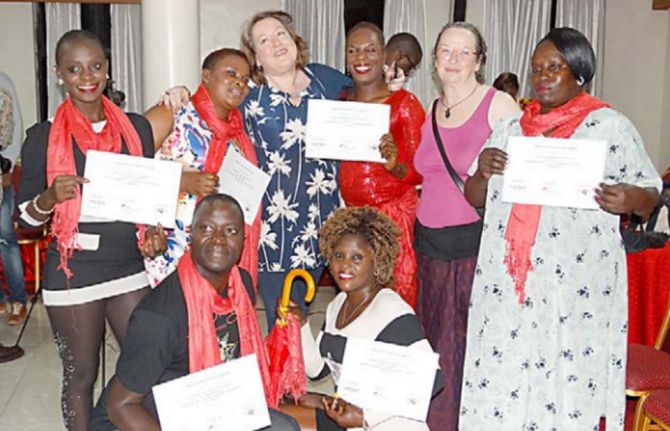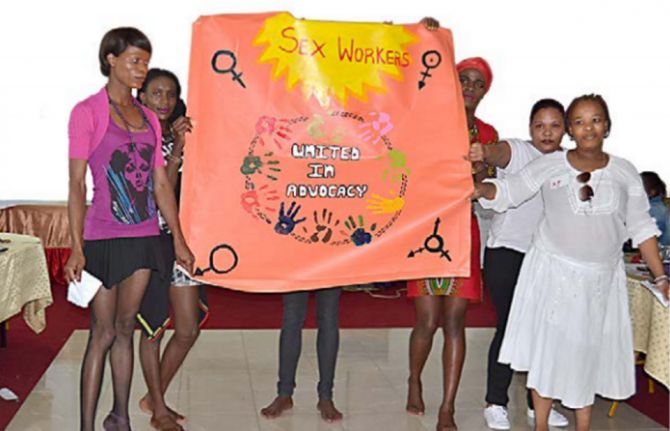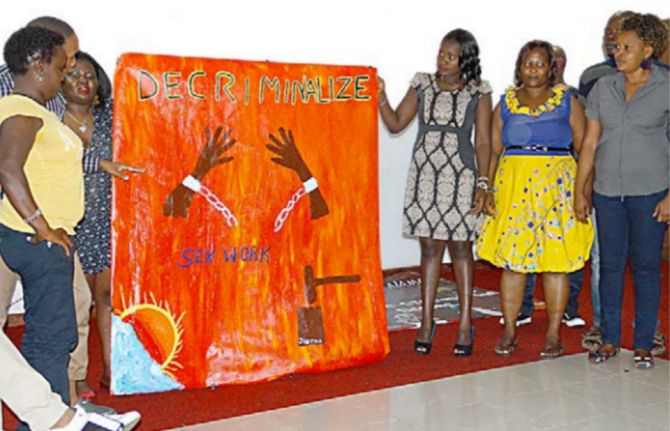



Feature Story
Sex Workers Academy Africa: increasing demand for rights-based HIV prevention services
21 November 2016
21 November 2016 21 November 2016The Sex Worker Academy Africa is a ground-breaking learning programme that aims to strengthen the rights of sex workers across 47 countries in Africa. It focuses on rapidly scaling up sex worker-led responses to HIV, increasing demand for and access to high-quality rights-based HIV prevention and treatment services for female, male and transgender sex workers and increasing HIV testing, leading ultimately to a fall in new HIV infections among sex workers.
The academy’s curriculum is based on the Sex Worker Implementation Tool. Developed by UNAIDS and partners in 2013, the tool outlines recommendations for the prevention and treatment of HIV and other sexually transmitted infections among sex workers in low- and middle-income countries.
Launched in 2015 and since held several times a year, the academy brings together sex workers from across the continent to explore issues such as community empowerment, addressing violence against sex workers, condom and lubricant programming, community-led services and capacity-building. The curriculum includes knowledge-sharing, art and dance advocacy projects, site visits, thematic workshops and feedback sessions. Each academy lasts a week and includes up to 18 participants.
Since its launch, more than 130 sex workers from 17 African countries have graduated from the academy. It has enabled sex workers from Namibia, the United Republic of Tanzania, Zambia and Zimbabwe to form their own national sex worker networks. In addition, sex workers from Lesotho and Swaziland have organized grass-roots organizations for sex workers where previously none had existed.
The academy is an African Sex Workers Alliance initiative implemented by the Kenya Sex Workers Alliance in Nairobi, Kenya. The curriculum was developed in cooperation with the Ashodaya Academy and the VAMP Institute in India, the Asia Pacific Network of Sex Workers and the Global Network of Sex Workers.
Initial funding for the development of the academy was provided by the United Nations Population Fund and the Dutch-funded nongovernmental organization Bridging the Gaps. Bridging the Gaps and the Robert Carr Fund have provided funding for the ongoing implementation of the academy’s work.



